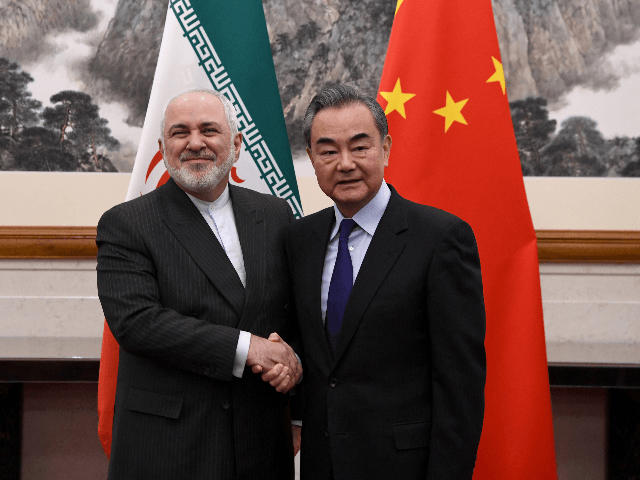China’s envoy to Iran, Chang Hua, said on Tuesday that nothing would soften Beijing’s determination to develop a strategic partnership with Tehran. He said this shortly before Iran launched a missile attack against two Iraqi military bases.
China has been more than willing to cover for Iranian aggression, simultaneously denouncing “military adventurism” by the United States and blocking a U.N. Security Council statement against Iran’s assault on the U.S. embassy in Baghdad, a blatant act of war. When the United States targeted Iranian terrorist leader Qasem Soleimani with an airstrike to retaliate for the embassy assault and prevent further attacks on American interests, China condemned the strike as an “abusive” use of force and a violation of international norms.
In Foreign Ministry briefings, however, Beijing has been careful not to say anything positive about Soleimani or offer condolences, despite Iran declaring three days of mourning and making a spectacle of national funeral rites.
“No matter how the global and regional situations have changed, China’s determination to develop a comprehensive strategic partnership with Iran will not change,” Chang declared on Tuesday. He went on to praise “good momentum” in agricultural and tech cooperation between the two countries.
Iran’s participation in joint naval exercises with Russia and China two weeks ago might have been intended to elevate Iran’s military profile and signal that Russia and China were ready to protect it, but neither of the larger powers did anything substantial on Tehran’s behalf when it pushed Washington too far.
Iran has been invited warmly into China’s axis of powers that view international human rights condemnation and economic sanctions as forms of “bullying,” but not into the sort of formal military alliance that might have shielded Iran from American retaliation for more vigorous missile strikes on Tuesday night.
China is thirsty for oil but appears to have given up on substantial investments in the Iranian market, perhaps having concluded Iran makes a fine partner for agriculture and geopolitical mischief but is not a reliable supplier of vital energy resources. Also, the Saudis moved aggressively to outflank Iran as a Chinese oil supplier, so Beijing’s most pressing concern is to keep the Strait of Hormuz open, a concern it happens to share with the United States and much of the world, no matter how effusively Chinese diplomats might praise Iran and forgive its belligerent behavior.
The South China Morning Post on Wednesday offered a convoluted theory that China was the real target of the airstrike that liquidated Qasem Soleimani: in essence, the Trump administration was trying to drag China into some sort of Middle Eastern proxy war and disrupt China’s plans to develop a network of Middle Eastern influence.

COMMENTS
Please let us know if you're having issues with commenting.